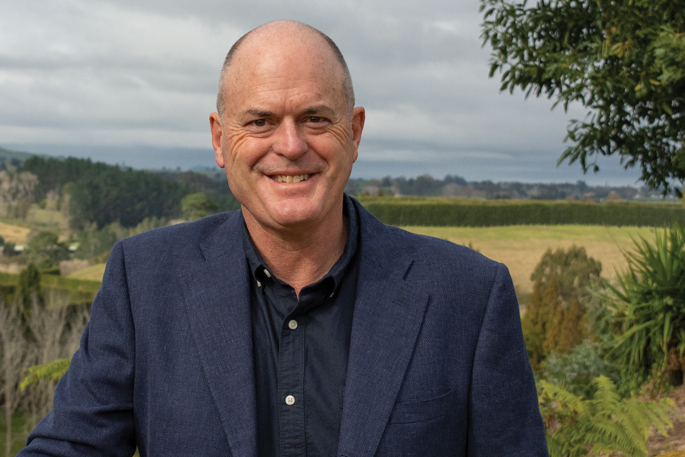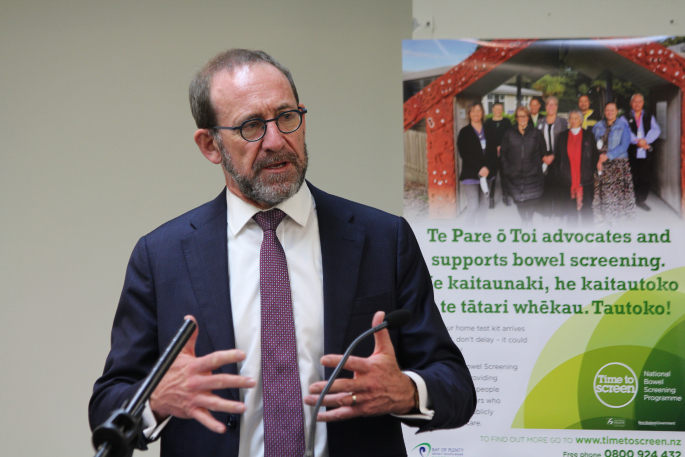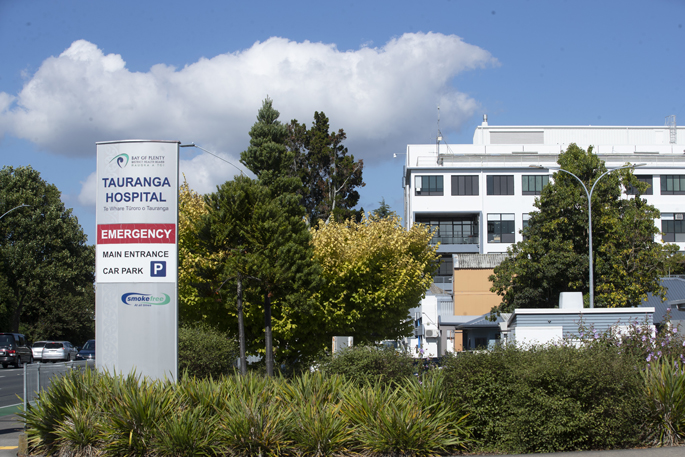The number of people waiting more than four months for elective surgery at Bay of Plenty hospitals has doubled in the last year.
Data from the Ministry of Health shows 1692 people have waited more than four months for surgery at Tauranga or Whakatāne Hospital as of the end of June, up from 636 in June 2021.
In June 2018 just 21 people had waited more than four months.
The ministry requires that all patients given a commitment to treatment should receive it within four months.
Bay of Plenty MP Todd Muller says he receives calls from people weekly who are in 'quite a lot of pain” and are still on the waiting list.
'They're now on a waiting list and there's no end in sight for these people and they are understandably really upset,” says Muller.
'They know that there's nothing that we can do to bump them up a waiting list.
'They are more ringing out of exasperation and desperation, that they're in a lot of pain, they have reached the threshold of pain, that means they're on the waiting list, but they just can't get in[for surgery].”
For non-acute surgeries eligibility is based on clinical priority assessment criteria (CPAC) and a threshold must be met before a person is entitled to publicly funded surgery.
The CPAC varies for different surgeries and differs between the regions.
Muller expressed his frustration at a 'lack of planning” after the first Covid-19 lockdown in March 2020.
The data showed the number of people waiting more than four months for surgery in May 2020 was 1055 it had jumped from 425 in February. During the lockdown elective surgeries were cancelled.
By December 2020 the figure had dropped to 362 but since then it has risen month on month.
'Clearly the investment hasn't gone in to ensure that people who need these operations are prioritised,” says Muller.
'We absolutely need to have sufficient numbers of doctors and nurses and specialists, in particular, invested in the system to be able to do this.”
Local Democracy Reporting asked Muller what he thought needs to happen to reduce wait times.
He replied: 'You need to invest in frontline services. Not huge, great big, centralising restructuring bureaucracies.
'You need more doctors, more nurses, more healthcare support workers and more operations being done because that's what the population needs.”
 Bay of Plenty MP Todd Muller hears from patients weekly who are in 'a lot of pain” while waiting for surgery. File photo/ SunLive.
Bay of Plenty MP Todd Muller hears from patients weekly who are in 'a lot of pain” while waiting for surgery. File photo/ SunLive.
The restructuring Muller referred to is the health reforms that came into force on July 1. Where the country's 20 district health boards were disestablished and management of the health system was handed to Te Whatu Ora - Health New Zealand.
In response to Muller's comments a Te Whatu Ora spokesperson says the reforms over the next two years are currently being funded from existing baselines.
'The interim NZ Health plan, to be launched soon, will map a pathway to putting the reforms into effect without compromising the level of care currently provided by hospitals and our primary care providers,” they say.
'In addition, a single national health service will be much more efficient in the long run, saving the health system money.”
Local Democracy Reporting asked Te Whatu Ora Hauora a Toi Bay of Plenty, formerly the Bay of Plenty District Health Board, what is being doing to reduce the wait times.
Hauora a Toi Bay of Plenty chief operating officer Bronwyn Anstis says all patients are treated in order of clinical priority.
'For non-urgent planned care patients, we are offering the opportunity of outsourcing to private providers and managing our theatre and procedure room capacity closely to ensure we can offer as many patients treatment as possible,” she says.
'As requested by the Planned Care Taskforce all long wait patients are being clinically reviewed to ensure the priority allocated remains current.”
Anstis says the cause of the increased surgical wait times is the impact of Covid lockdowns, unplanned leave due to Covid and winter illnesses, vacancies, sustained high acute demand and sustained high occupancy in the two hospitals.
She says Hauora a Toi is currently undertaking a review to determine how long it will take to reduce the wait times.
Muller expressed concern the backlog would be addressed by raising the CPAC threshold.
'What I don't want to see happen is suddenly them change the threshold and make people need to be completely unable to walk before they can qualify for a hip replacement, which is another way I've seen it done in the past.”
Ansits responded: 'There has been no change to access thresholds in response to managing those patients currently on the wait list.”
 Health Minister Andrew Little. Photo: Taylor Rice/SunLive.
Health Minister Andrew Little. Photo: Taylor Rice/SunLive.
Earlier in August, Health Minister Andrew Little announced a range of measures to combat health workforce shortages.
These included establishing an international recruitment service, paying up to $10,000 each for nurses to remove financial barriers to completing New Zealand registration assessments and a six-month bridging programme for doctors coming to New Zealand, with paid salaries including during six-week clinical induction and three-month training internships.
The government also planned to double the number of nurse practitioners trained each year from about 50 to 100 and use the Shortland Street television show to attract young people into nursing and encourage nurses to return to practice.
Muller describes the Shortland Street campaign as a 'distracting side show”.
In his view: 'They should open the tap on local GP and nurse training and make it easier for overseas specialists to call Tauranga home.”
The Te Whatu Ora spokesperson says the workforce measures recently announced by the Government would smooth the pathway for domestic and international health workforce candidates.
'More doctors and supporting staff will mean more surgeries each week across Aotearoa in the long term,” they says.
'It will, however, take some time for the impact of the new measures to flow on to wait times specifically.”
Public Interest Journalism funded through NZ On Air.




1 comment
It's all about
Posted on 25-08-2022 10:01 | By fair game
people just not doing the right thing. Government ministers not paying healthcare staff appropriate wages. Government ministers making it difficult for overseas healthcare workers gaining employment. General public not wearing masks, and being unvaccinated resulting in spread of disease and our healthcare system getting clogged up because of it, and resulting in massive debt. If everyone just did the right thing, it would be a happier country. Can't complain if you don't do the right thing, and come on Government - do your part too!!
Leave a Comment
You must be logged in to make a comment.